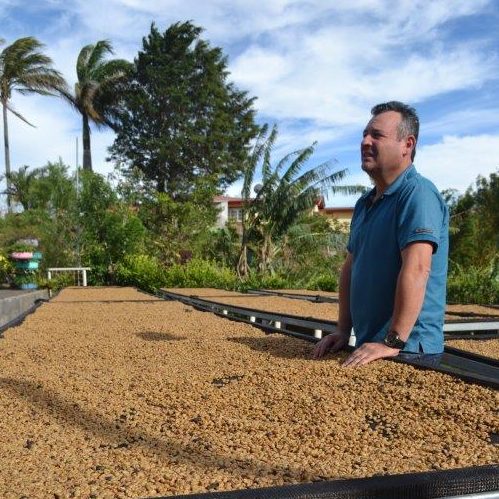Description
Coffee Origin
Costa Rica is one of the top producers of coffee, and, as their number three export, is incredibly important to the country’s economy. Arabica coffee was first introduced to the country directly from Ethiopia in the late 1770’s. Like many countries’ governments, the Costa Rican government encouraged farming by offering plots of land to farmers who wanted to grow and harvest the plants. By 1829, coffee production was a larger source of revenue than tobacco, cacao, and sugar cane. Today, many Nicaraguan immigrants are often employed as seasonal workers on plantations to harvest coffee during peak seasons.
Honey processed coffee is unique in that while the skin and pulp are removed from the cherry, the mucilage, a sugary, sticky outer layer, is retained during the drying stage. This mucilage is sometimes called “honey”, which is why this process is called Honey Process. Honey processed coffees are significantly less acidic than washed or natural/sun dried coffees and have much more character and sweetness than traditional fully washed coffees.
Farmers have begun to assign colors to each honey process. Colors are assigned to indicate the amount of sunlight each cherry is exposed to, yellow/white being the most and black being the least. Yellow/white honey coffees are usually dried in the sun for around a week, red honey is dried for two to three weeks, usually in the shade, and black honey is exposed to as little light as possible and must dry for at least two weeks. The longer the dry time, the more fruit-forward the end result tastes.
Las Lajas
The Black Honey process is a Las Lajas specialty and has been developed and refined over the seasons. This is the longest honey process used at Las Lajas, and involves the coffee being left for a period of 24 hours. Beneficio Las Lajas is owned by Oscar and Francisca Chacón. Las Lajas
is one of the best micro mills in Costa Rica, and is well known within the industry for its unique and exceptional drying techniques for natural and honey processed coffees. Oscar and Francisca are continually experimenting and developing new processing techniques. They’re motivated in the search for the perfect technique to produce a cup that expresses the inherent delicacy, harmony and complexity of their coffees.






Reviews
There are no reviews yet.